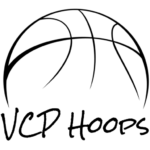Pressure is mounting on the NCAA.
The governing body overseeing amateur sports is facing legal threats — some overlapping, some contradictory — to its status quo on several fronts. On Monday, the National Labor Relations Board told players on the Dartmouth men’s basketball team that they fit the definition of a university employee. The following day, a federal judge wrote that the Tennessee attorney general is “likely to succeed on the merits” of a claim that the NCAA can’t legally punish players or their schools for negotiating name, image and likeness deals during their recruiting process. The NCAA is already fighting existing court cases and lobbying Congress for national rules, and while there’s no clear, singular knockout punch on the horizon, it’s clear walls are closing in on what remains of amateurism in college sports.
It’s a lot to keep track of, so here’s a crib sheet to help you out.
The latest on NLRB cases
The federal agency that oversees collective bargaining rights for employees of private American companies is in the midst of two cases involving college athletes. In New Hampshire, Dartmouth’s basketball players cleared the first major hurdle toward joining a union. In Los Angeles, the NLRB will resume a similar trial later this month on behalf of football and basketball players at USC.
Administrators at Dartmouth said they plan to appeal this week’s decision to the NLRB’s national board — a process that could take more than a year to resolve. In 2014, an NLRB regional director ruled that Northwestern football players were employees, but an appeal by the school ultimately derailed the players’ effort to unionize.
Why might this time be more successful for the players? The legal and public perception of college athletes has certainly shifted (more on that below). But more importantly, the board punted a decision in the Northwestern case, in large part, because Northwestern’s Big Ten peers were public institutions, which have different laws for collective bargaining outside the NLRB’s purview. The board didn’t want to create an unfair market in which only one team had players that could bargain as employees. Dartmouth players in the all-private-school Ivy League would not face the same issue.
Dartmouth’s players said in a statement this week they intend to form a players’ association…
Click Here to Read the Full Original Article at www.espn.com – NCB…

